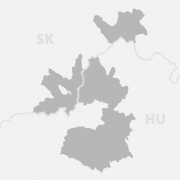A „Sustain Migrant’ Integration for Linking Networks in a Inclusive Europe – Smiling Project” nevű projektet a Fondachelli-Fantina község népszerűsíti azzal a céllal, hogy létrehozzanak egy tematikus városhálózatot, ami felhívja a figyelmet a bevándorlással, integrációval és társadalmi befogadással kapcsolatos kiemelt kérdésekre és a bevándorlók peremre szorulása és megbélyegzése ellen küzd. A projekt szeretné megerősíteni az erős, hosszan tartó és eredményes együttműködést Olaszország, Lengyelország, Csehország, Görögország, Magyarország, Hollandia, Szlovákia, Málta, Portugália, Spanyolország, Németország, Litvánia, Észtország, Lettország és Bulgária között. Ezeknek az országoknak a nagy részében a bevándorlás egy nyílt vita, ahol az országok vesztésre állnak. A projektnek több, mint 600 résztvevője lesz élettartama alatt, és az aktív és inaktív résztvevőkre is nagy hatással lesz. A szélesebb partnerség egy platform az EU legnagyobb prioritásáról és az európai társadalom kihívásáról való párbeszédre, ezzel a polgári részvétel és integráció új formáit ösztönözve, a biztonság és a kohézió érdekében Európában. A projekt fő célja, hogy bevonja a városokat és a helyi viszonyokat, az érdekelt feleket, a szakértőket és a civil szervezeteket, amik minden nap bevándorlókat és menekülteket fogadnak és integrálnak, állampolgárokat és fiatalokat, hogy felhívják a figyelmet az integráció, a menedékhelyek, a részvétel, a politikai jogok, az interkulturális kommunikáció, a kulturális közvetítők, a kiskorúak, a nők (a nemi perspektíva miatt), a bevándorlók szolgáltatásai és az egészségügyi rendszer politikájára. A projekt 5 vándorló rendezvényt fog támogatni Európában. A rendezvények keretein belül nyílt viták, a jó példák terjesztése és cseréje, összehasonlítások, kerekasztalok, kezdő rúgások, esettanulmányok, interaktív műhelyek kerülnek majd megrendezésre, valamint a bevándorlókkal készült interjúkból és a dokumentumfilmekből a résztvevők megismerhetik majd az élettörténeteiket, és tárgyi dokumentumok készülnek majd, amiket innovációs eszközökkel (ICT) terjesztünk a fiatalok bevonása érdekében.
